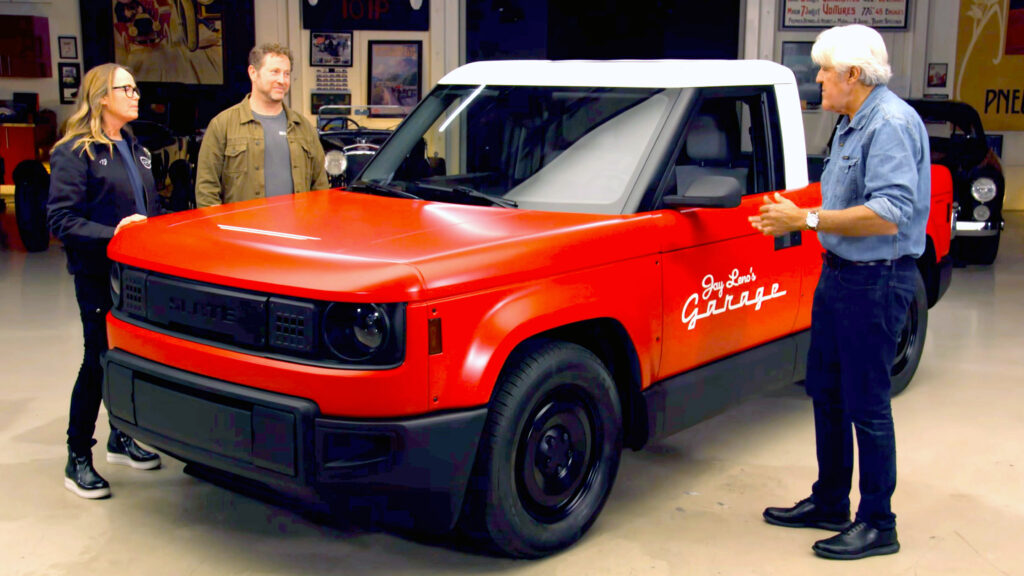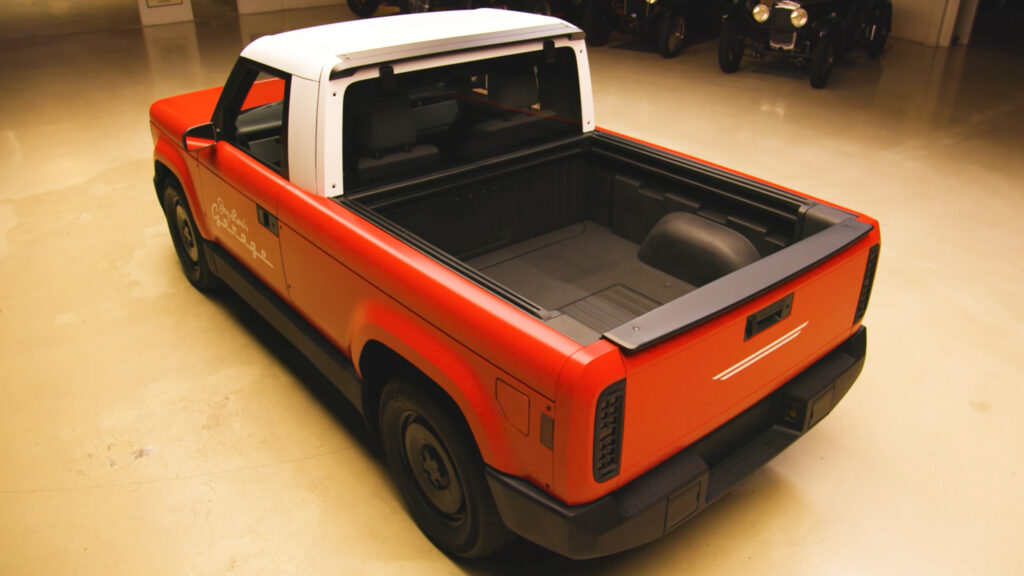Slate Teases EV Truck Price As $20K Dream Collapses
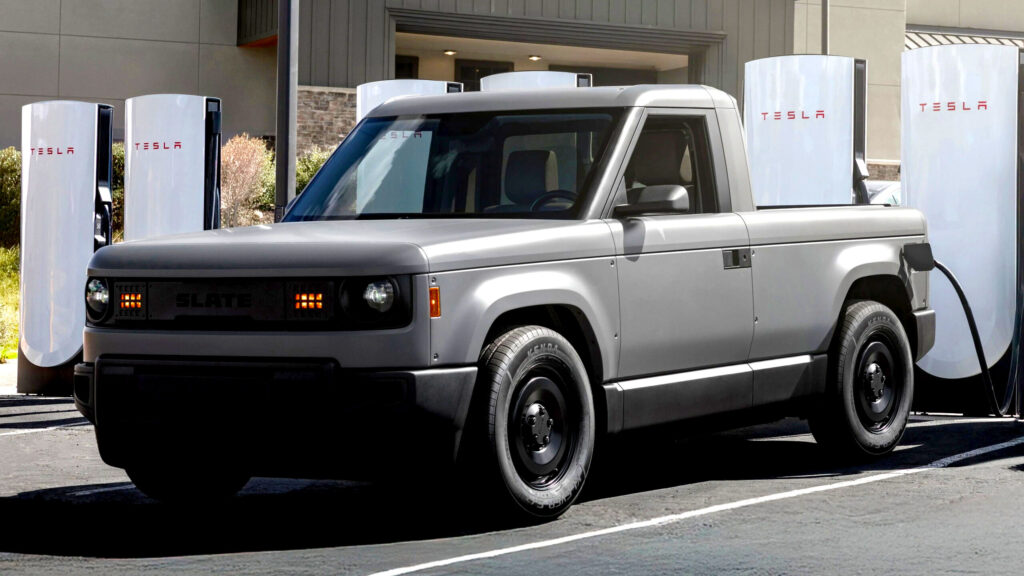
- Pricing reveal scheduled for late June.
- Sparse modular design remains a risky bet.
- Production in Indiana is planned by year-end.
Slate Auto is only a few months away from what could become the most consequential moment in its brief existence. It will soon tell the world exactly how much its trucklet will cost. We already know it is targeting the “mid-$20,000 range,” but whether or not that’ll be cheap enough for widespread adoption is an open question.
This week, the startup teased on social media that final pricing for its two-door EV will arrive in late June. In the video, CEO Chris Barman reiterates that the base “Blank Slate” model is still expected to land in the mid-$20,000 bracket.
More: Slate Still Doesn’t Know What Its EV Truck Will Actually Cost
“We’ve been working tirelessly to get the lowest price possible,” Barman said. “While we’re not pencils down just yet, we’re wrapping negotiations on final parts with suppliers. We’re on track to share new info on the price in June. We think it’ll be worth the wait.”
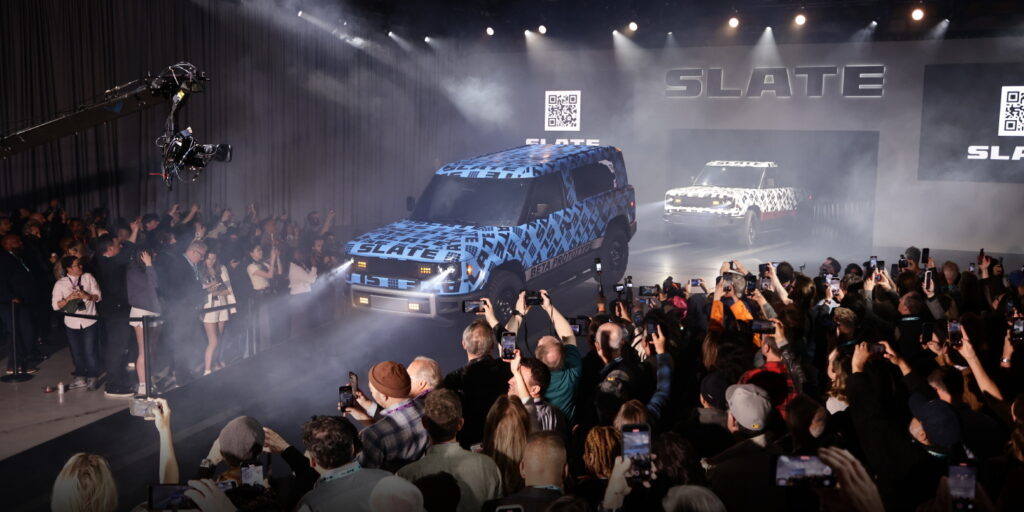
Obviously, the mid-$20,000 range is a break from Slate’s initial promise of a truck that starts under $20,000. That said, its initial promise relied heavily on the now-defunct $7,500 federal EV tax credit. Without it, breaking that price barrier was always going to be a stretch given material costs and industry margins. The updated estimate sounds a lot more realistic, but also far less revolutionary.
The Reality Ahead
Let’s say that the trucklet launches with relatively approachable MSRP. Slate will still need to nail the details. Execution at the manufacturing, service support, parts supply, and consumer education level will be paramount. Other startup automakers have failed on fewer issues.
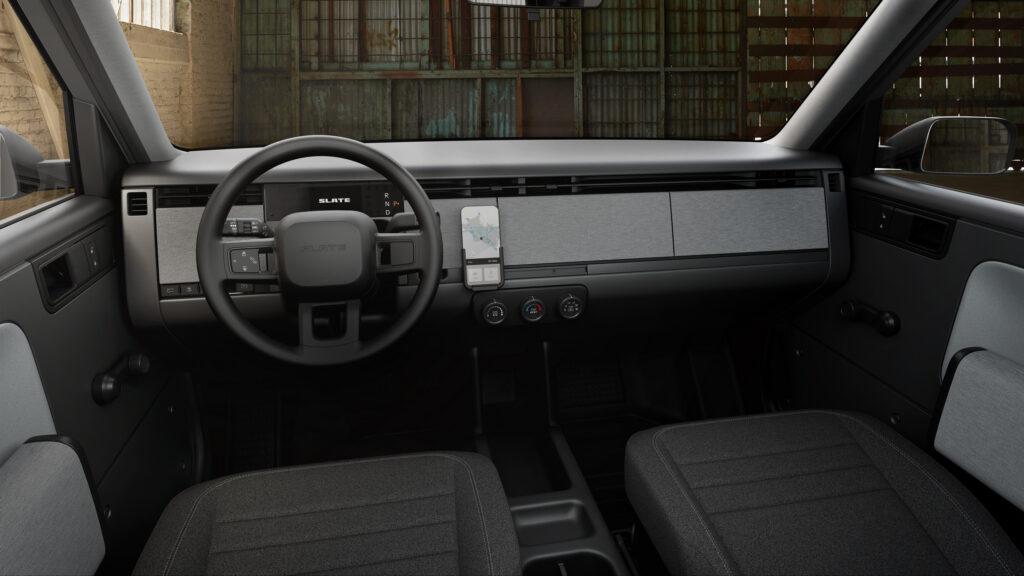
Then, there’s the competition. We’ve pointed out just how unattractive a $25,000-$28,000 Slate might appear next to something like the Ford Maverick. That isn’t the only compact truck in the market and the Blue Oval brand is already working on an electric version of its own, which it promises to start from $30,000.
And while we’re still light on specifics, it is hard to imagine Ford delivering something as unapologetically stripped back as the Slate, which famously does without even basic features like integrated speakers and power windows.
That all said, a small, affordable, modular EV with tons of personality might just manage to escape the fray. Production is supposed to begin by the end of the year in Indiana.
